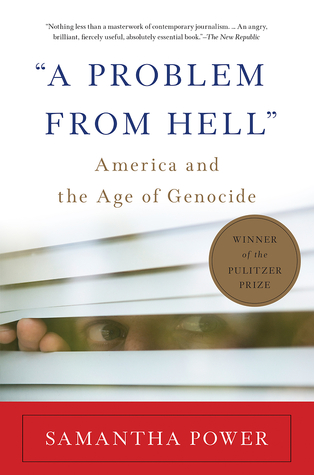More on this book
Community
Kindle Notes & Highlights
Read between
December 24, 2019 - April 13, 2020
administration policymakers appealed to notions of the greater good.
the almost willful delusion that what was happening in Rwanda did not amount to genocide created a nurturing ethical framework for inaction.
The genocide in Rwanda cost Romeo Dallaire a great deal. It is both paradoxical and natural that the man who probably did the most to save Rwandans feels the worst.
“It seems . . . inconceivable that one can watch . . . thousands of people being . . . massacred . . . every day in the media . . . and remain passive.”
the CIA even boasts an ombudsman to guard against politicization and deter analysts from overreaching or drifting into advocacy of any kind. As one CIA official said, however, “It is tough to draw the line between what is politicized analysis and what is an agent simply saying, ‘You’re stupid and wrong.’”
feeling a sense of urgency and acting urgently were two different matters.
This was the first time in the twentieth century that allowing genocide came to feel politically costly for an American president.
You Americanize the war or you Americanize the genocide. Since the United States is the only power in the world that can stop the ethnic cleansing, the United States is responsible if the ethnic cleansing continues. Well, not exactly the United States. The American president is an accomplice to genocide. Not so the American people. The president of the United States does not have the right to make the people of the United States seem as indecent as he is. He has the power, but he does not have the right.
go to see the people of Srebrenica. Tell them “never again” was meant for domestic consumption.
the Holocaust comparisons, though apt, may have given onlookers additional excuses to do nothing. The Holocaust and the Cambodian and Rwandan genocides had set too high (or low) a standard for American concern or action. “We can watch the murder, rape and plunder of Bosnia’s Muslims, but then reassure ourselves that the numbers don’t compare yet with the efficient cruelty of Auschwitz or the acres of skulls that made a grisly mosaic across the killing fields of Cambodia,”
Intelligent and informed people have learned to reason themselves out of action.
No war crime short of Hitler seems to impress us. How close do such atrocities have to resemble the Holocaust for reasonable people to feel that there is only so much genocide they will accept?
A coalition of twenty-seven organizations, most of which had not previously supported the use of military force anywhere, issued a press release demanding military intervention: “Force must be used to stop genocide, not simply to retreat from it. American leadership, in particular, is required. . . . Nothing else has worked.”
After heated debate, Human Rights Watch decided that henceforth anytime that “genocide or mass slaughter” could be diagnosed around the world, the group would have to put aside its mistrust of military power and recommend armed intervention.
continued failure in Bosnia was going to spill over and damage the rest of our domestic and foreign policy.”
“You have to ask yourself which decision would you rather defend ten years from now when you’re not in office.” Clinton said. “I would rather explain why we tried” than why “NATO’s alliance was destroyed, and the influence of the United States was compromised for ten years.”94 For the first time, Clinton saw the costs of noninvolvement as greater than the risks of involvement.


